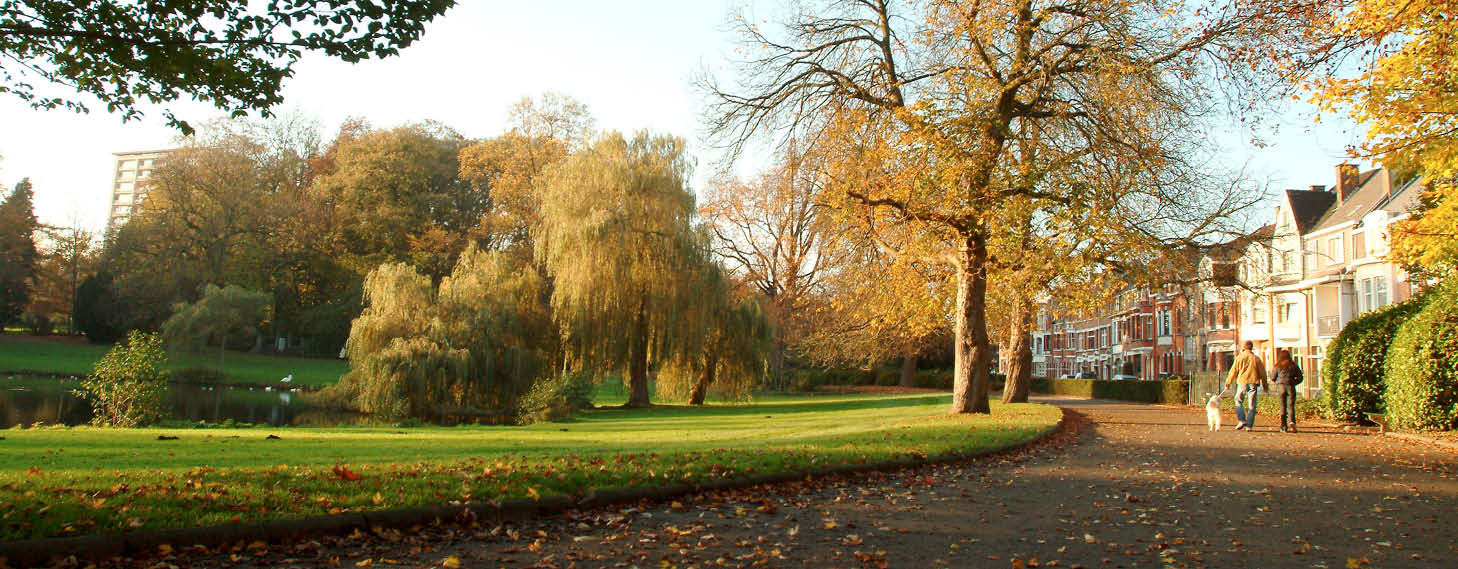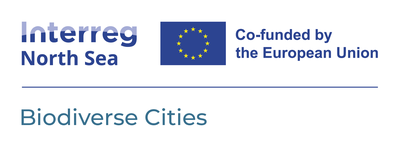Biodiverse Cities improves biodiversity in cities

A society where both nature and people can flourish to the fullest.
Why?
The North Sea Region is a vast urbanised area and is a barrier to ecosystem continuity. A loss of biodiversity has a huge impact on climate change, ecology and human well-being. Despite increasing policy attention around diversity, it is often overlooked in cities. Urban professionals also often lack the necessary expertise.
Biodiverse Cities aims to accelerate action on biodiversity to transform cities into nature-inclusive societies.
Objective
The main objectives of the Biodiverse Cities project are:
- to improve the continuity of natural networks and the quality of green infrastructure and increase biodiversity
- to improve citizens' relationship with and acceptance of nature and biodiversity
- to integrate biodiversity holistically into all city processes (governance, policy and investment)
The pilot projects
5 partner cities in Europe are establishing a Nature-based Solutions pilot project to improve local biodiversity. Three 'pollinator' cities will replicate the solutions based on the results.
» Aarhus pilot project
The focus in Aarhus is on restoring the natural habitat of farmland and creating green corridors for the benefit of nature and citizens' health in the Green Ring south of Aarhus. An action plan to convert farmland into nature and restore native vegetation such as dry heath in the Hede Enge area is also being drawn up. Private landowners will be involved in the process. Aarhus is also investigating possibilities for more recreation.
» Bremen pilot project
Bremen is focused on creating green spaces, planting urban trees and constructing green roofs.
» Dordrecht pilot project
Dordrecht will transform several areas of the city, e.g. conversion to an XXL city park. It will also develop a climate oasis for citizens and create a new park with 250 trees.
» Lille pilot project
Lille's focus is on the creation of ecological corridors and brown grids, the renaturation of urban soils and the design of tools for urban monitoring.
» Växjö pilot project
This project is (re)developing the Arena City area to offer more nature, leisure and culture. A new development area is also being created in Telestadshöjden, with opportunity for nature integration (connection to wetland) and citizen co-creation.
| Project partners | |
|---|---|
| City partners |
Dordrecht Växjö Aarhus Lille Bremen |
| Knowledge partners |
Aarhus University Aeres University of Applied Sciences Almere University of Bremen Open Kaart |
| Impact partners |
IUCN Flanders Environment Agency |
| Local support partners |
Bremer Umwelt Beratung Het Vogelnest |
| 'Pollinator' cities |
City of Bergen LSBG Hamburg Ville de Brest |
Type project: Interreg North Sea Region



